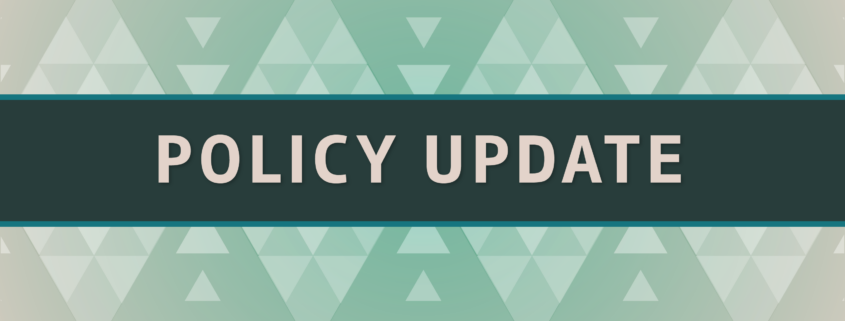Congressional Native American Caucus Leaders Lead Letter to Safeguard FY 2026 Tribal Program Funding
On June 23, 2025, 15 Congressional leaders joined the Native American Caucus co-chair Sharice Davids (D-KS-03) and vice-chair Nick Begich (R-AK) in their Dear Colleague letter to House Appropriations Chair Tom Cole (R‑OK‑04) and Ranking Member Rosa DeLauro (D‑CT‑03) requesting the FY 2026 spending bills fully protect funding for Tribal programs. The letter emphasizes that programs such as Indian Health Service (IHS), Bureau of Indian Affairs, Bureau of Indian Education, and related Department of Justice initiatives are not discretionary benefits but an expression of, as the letter states, “… the United States’ trust and treaty obligations to Tribal Nations and Tribal citizens and communities.”
The letter calls for safeguarding every federal dollar that reaches Indian Country—including direct Tribal line items, set‑asides, and broader accounts leveraged by Tribes—while expanding self‑determination, self‑governance, and more stable funding mechanisms.
NCUIH is grateful for the support of the following Representatives:
- Sharice L. Davids (D-KS-03)
- Nicholas J. Begich III (R-AK-At Large)
- Greg Stanton (D-AZ-04)
- Melanie Stansbury (D-NM-01)
- Dusty Johnson (R-SD-At Large)
- Timothy M. Kennedy (D-NY-26)
- Joe Neguse (D-CO-02)
- Raul Ruiz, M.D. (D-CA-25)
- Gabe Vasquez (D-NM-02)
- Angie Craig (D-MN-02)
- Jared Huffman (D-CA-02)
- Brian Babin, D.D.S. (R-TX-36)
- Marilyn Strickland (D-WA-10)
- Kelly Morrison (D-MN-03)
- Emily Randall (D-WA-06)
- Salud Carbajal (D-CA-24)
- Cleo Fields (D-LA-06)
Background
NCUIH has worked tirelessly with Congressional leaders and partners to protect funding for IHS and other key programs in the upcoming FY 2026 appropriations bills. NCUIH worked with the Coalition for Tribal Sovereignty to help secure signees for this Native American Caucus Dear Colleague letter. Additionally, NCUIH has provided oral and written testimony to the committee and support for a Congressional Dear Colleague letter in support of Urban Indian Health.
- NCUIH Written Testimony to House Interior Appropriations Committee
- NCUIH Board President-Elect Robyn Sunday-Allen Testifies on Importance of Native Health Care
- Bipartisan Group of 61 Congressional Leaders Request Protection of IHS Funding and Increased Resources for Urban Indian Health
Full Letter Text:
Dear Chairman Cole and Ranking Member DeLauro,
We are contacting you on behalf of the undersigned members of the Congressional Native American Caucus to urge you to protect and support funding for Tribal programs for Fiscal Year (FY) 2026.
As you both know very well, Tribal programs are different from other federal programs. Tribal programs deliver on the United States’ trust and treaty obligations to Tribal Nations and Tribal citizens and communities. Examples of essential services provided under these obligations include healthcare through the Indian Health Service, land management, law enforcement, and public safety through the Bureau of Indian Affairs, education through the Bureau of Indian Education, criminal prosecution by the Department of Justice, and other important services. Tribal programs are also unique because they are delivered in recognition of Tribal Nations’ and Native people’s unique political status under the U.S. Constitution, as recognized by the U.S. Supreme Court.
All federal funding that flows to Indian Country should be considered delivered in furtherance of trust and treaty obligations—despite the varied delivery methods. This includes funding specific to Tribal programs, Tribal set-asides, and more widely available funding that Indian Country has accessed to fill gaps in funding deficits. It also includes funding used to provide direct services and funding Tribal Nations have accepted through self-determination contracts, self-governance compacts, or otherwise to deliver governmental services to their own communities. Any improvements to these programs should focus on increasing the efficiency of federal dollars by expanding self-determination and self-governance models and creating more stable funding mechanisms.
We respectfully ask that you safeguard and support all federal funding flowing to Indian Country to ensure successful delivery of services. We also ask that you support funding necessary to maintain federal employee positions that service Tribal nations and the federal offices that provide these services.
Congress’s full and stable delivery of federal funding obligated to Indian Country will directly result in enhanced economic development and capacity building that benefits Tribal communities and their surrounding states and localities. Full, sustained, and advanced funding will strengthen local communities and provide the federal government a valuable return on investment.
If you have any questions, please feel free to contact Co-Chair Davids’ office at (202) 225-2865 or Vice Chair Begich’s office at (202) 225-5765. Thank you for considering our views when negotiating the final FY26 appropriations bills.




